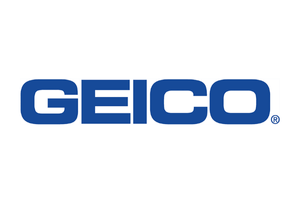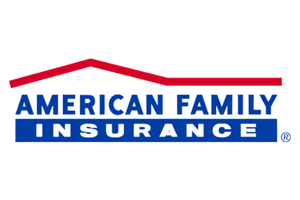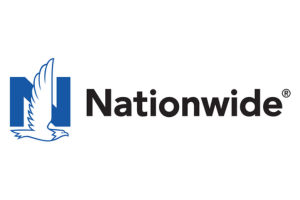How To File a Homeowners Insurance Claim in Wisconsin
Learn the step-by-step process of filing a homeowners insurance claim in Wisconsin. This insightful article provides valuable guidance on how to navigate the complexities and ensure a smooth claims process.
Read more Secured with SHA-256 Encryption





Save Money by Comparing Insurance Quotes
Compare Free Home Insurance Quotes Instantly




Table of Contents
Table of Contents


Insurance Content Managing Editor
Daniel S. Young began his professional career as chief editor of The Chanticleer, a Jacksonville State University newspaper. He also contributed to The Anniston Star, a local newspaper in Alabama. Daniel holds a BA in Communication and is pursuing an MA in Journalism & Media Studies at the University of Alabama. With a strong desire to help others protect their investments, Daniel has writt...
Daniel S. Young


Licensed Insurance Producer
Dani Best has been a licensed insurance producer for nearly 10 years. Dani began her insurance career in a sales role with State Farm in 2014. During her time in sales, she graduated with her Bachelors in Psychology from Capella University and is currently earning her Masters in Marriage and Family Therapy. Since 2014, Dani has held and maintains licenses in Life, Disability, Property, and Casualt...
Dani Best
Updated September 2024
Understanding Homeowners Insurance in Wisconsin
Homeowners insurance is a crucial safeguard that protects you and your home from unexpected events such as fires, theft, and natural disasters. If you’re a homeowner in Wisconsin, it’s essential to understand the basics of homeowners insurance in your state.
The Basics of Homeowners Insurance
Homeowners insurance provides coverage for your property, belongings, and liability. It is a crucial form of protection that every homeowner should have. In the event of a disaster or unexpected event, homeowners insurance can provide financial support and peace of mind.
When it comes to homeowners insurance, there are several types of coverage that are typically included:
- Dwelling coverage: This type of coverage protects the structure of your home from damage caused by covered perils such as fire, windstorms, and vandalism. It ensures that if your home is damaged, the cost of repairs or rebuilding will be covered.
- Personal property coverage: Your belongings are important to you, and homeowners insurance understands that. Personal property coverage covers your belongings, such as furniture, appliances, and clothing, against theft, damage, or loss. This means that if your belongings are stolen or damaged, you can receive compensation to replace them.
- Liability coverage: Accidents can happen, and if someone is injured on your property and you are found responsible for their injuries, liability coverage provides financial protection. It covers legal fees, medical expenses, and other costs associated with a liability claim.
Having a comprehensive homeowners insurance policy is essential, but it’s also important to understand the specific coverages, limits, and deductibles of your policy. This knowledge will help you make informed decisions and ensure that you have the right level of protection for your needs.
Specifics of Wisconsin Homeowners Insurance Policies
Wisconsin homeowners insurance policies can vary in terms of coverage and limits. It’s crucial to be aware of any specific requirements or exclusions in your policy. Each state has its own regulations and considerations, and Wisconsin is no exception.
When it comes to homeowners insurance in Wisconsin, there are a few key things to keep in mind:
- Additional coverage options: Some Wisconsin homeowners insurance policies offer additional coverage for detached structures, such as garages or sheds. This means that not only is your main dwelling protected, but any additional structures on your property are covered as well.
- Special coverage options: It’s important to review your policy to see if you have any special coverage options. For example, some policies might offer coverage for sewer backup or identity theft protection. These additional coverages can provide extra peace of mind and protection against unexpected events.
Understanding the specifics of your Wisconsin homeowners insurance policy is essential. By reviewing your policy, you can ensure that you have the right level of protection and take advantage of any additional coverage options that may be available.
Free Home Insurance Comparison
Compare Quotes From Top Companies and Save
Secured with SHA-256 Encryption
When to File a Homeowners Insurance Claim
Knowing when to file a homeowners insurance claim can be challenging, especially when dealing with damage or loss. Here are some situations that commonly warrant filing a claim:
Assessing Property Damage
If your home has been damaged by a covered peril, such as a severe storm or fire, it’s important to assess the extent of the damage. Take photos or videos of the damage and document any necessary repairs or replacements. Insurance companies typically require this documentation to process your claim efficiently.
When assessing property damage, it is crucial to be thorough and meticulous. Take the time to inspect every nook and cranny of your home. Look for signs of structural damage, water leaks, or any other issues that may have resulted from the incident. Remember, even minor damage can have long-term consequences if left unaddressed.
Furthermore, it is advisable to consult with professionals, such as contractors or restoration specialists, to accurately evaluate the damage. They can provide expert opinions and estimates, which can strengthen your claim with the insurance company.
Dealing with Theft or Vandalism
If you’re a victim of theft or vandalism, contact the police immediately and file a police report. Document any stolen or damaged items and gather supporting evidence, such as receipts or appraisals. Your insurance company will likely require this information when you file a claim.
Experiencing theft or vandalism can be emotionally distressing, and it is essential to prioritize your safety and well-being. Once you have ensured your personal safety, begin documenting the incident meticulously. Take inventory of all stolen or damaged items, noting their approximate value and any distinguishing features.
In addition to reporting the incident to the police, it may be helpful to notify your neighbors and any neighborhood watch groups. This can potentially aid in the recovery of stolen items or provide valuable information to law enforcement.
Remember to keep all receipts and proof of ownership for your belongings. This documentation will help substantiate your claim and expedite the claims process. If you have any valuable or high-ticket items, such as jewelry or electronics, consider keeping their purchase receipts and appraisals in a secure location, separate from your home, to prevent loss in the event of a burglary.
The Process of Filing a Homeowners Insurance Claim in Wisconsin
When filing a homeowners insurance claim in Wisconsin, it’s crucial to follow the proper procedures to ensure a smooth process. Here are the essential steps:
Contacting Your Insurance Company
As soon as you discover the loss or damage, contact your insurance company promptly. Most insurers have a dedicated claims department that handles these situations. Be prepared to provide your policy number, a brief description of the incident, and any relevant documentation you have gathered.
When you contact your insurance company, you may be asked to provide additional information such as the date and time of the incident, the location of the property, and any witnesses who can support your claim. It’s important to provide accurate and detailed information to expedite the claims process.
Once you have reported the claim, the insurance company will assign a claims adjuster to assess the damage and guide you through the rest of the process. The adjuster will be your main point of contact and will work closely with you to ensure a fair resolution.
Documenting the Damage
Before making any repairs or cleaning up, take detailed photographs or videos of the damage. This visual evidence will help support your claim and ensure that you receive the appropriate compensation. It’s also important to create a comprehensive inventory of all damaged or lost items. Include their value, purchase date, and any receipts or appraisals you have.
When documenting the damage, make sure to capture the extent of the destruction from different angles. This will provide a more accurate representation of the impact and help the claims adjuster assess the situation effectively. Additionally, if there are any temporary repairs that need to be made to prevent further damage, be sure to document those as well.
Keep in mind that the insurance company may request additional documentation to support your claim. This could include repair estimates from contractors, medical bills if there were any injuries, or any other relevant information related to the incident. It’s important to keep all records and receipts organized throughout the process.
Meeting with the Adjuster
Your insurance company will likely assign an adjuster to assess the damage and determine the claim’s validity. It’s crucial to schedule a meeting with the adjuster and provide them with any necessary documentation. Be prepared to answer questions and provide a detailed account of the incident. The adjuster will inspect the damage and estimate the cost of repairs or replacements.
During the meeting with the adjuster, it’s important to be thorough and transparent. Provide them with all the information they need to accurately assess the damage and determine the appropriate compensation. The adjuster may ask for additional documentation or clarification on certain aspects of the claim, so be prepared to provide any requested information promptly.
After the adjuster has completed their assessment, they will provide you with a detailed report outlining their findings. This report will include the estimated cost of repairs or replacements, as well as any other relevant information regarding the claim. Review the report carefully and address any concerns or discrepancies with the adjuster.
Once you and the adjuster have reached an agreement on the claim, the insurance company will process the payment. The timeline for receiving the payment may vary depending on the complexity of the claim and the insurance company’s internal processes.
Remember, filing a homeowners insurance claim can be a complex and time-consuming process. It’s important to stay organized, keep detailed records, and communicate effectively with your insurance company and the claims adjuster. By following the proper procedures and providing accurate information, you can ensure a fair and efficient resolution to your claim.
Navigating the Claims Process
Understanding the insurance adjuster’s role and knowing how to negotiate your claim settlement can greatly impact the outcome of your homeowners insurance claim.
Dealing with the aftermath of a disaster can be overwhelming, but having a clear understanding of the claims process can help alleviate some of the stress. When it comes to filing a homeowners insurance claim, the insurance adjuster plays a crucial role in determining the outcome. Their expertise and knowledge can make a significant difference in the settlement you receive.
Understanding the Insurance Adjuster’s Role
An insurance adjuster represents the insurance company and is responsible for assessing the damage, determining coverage, and offering a settlement. They are the ones who will review your claim, evaluate the evidence and documentation you provide, and negotiate the amount that the insurer is willing to pay for the damages.
During this process, it is essential to communicate openly and provide accurate information to the adjuster. The more transparent and detailed you are, the better they can understand the extent of the damage and the value of your claim. This will help ensure that you receive a fair settlement.
When the adjuster visits your property to assess the damage, it’s crucial to be present and available to answer any questions they may have. Providing them with a thorough explanation of the incident and any relevant details can help them accurately evaluate your claim.
Additionally, the adjuster may request supporting documentation, such as photographs, receipts, or repair estimates. It’s important to provide these promptly and ensure they are clear and comprehensive. The more evidence you can provide, the stronger your claim will be.
Negotiating Your Claim Settlement
When negotiating your claim settlement, it’s important to be prepared and informed. Start by thoroughly documenting the damage and the value of your loss. This can include taking detailed photographs, obtaining repair estimates from reputable contractors, and gathering any other relevant evidence.
Once you have gathered all the necessary documentation, you can present it to the insurance adjuster to support your valuation of the loss or damages. Keep in mind that the insurance company’s initial settlement offer may not always be sufficient to cover all your expenses. However, this doesn’t mean you should accept it without question.
If you feel that the initial settlement offer is inadequate, you have the right to challenge it. This is where your supporting evidence becomes crucial. Presenting additional quotes from contractors or repair experts can help demonstrate the true cost of restoring your property to its pre-loss condition.
During the negotiation process, it’s important to remain calm and professional. Emotions can run high during this time, but maintaining a level-headed approach can help you achieve a more favorable outcome. Clearly and respectfully communicate your position, providing evidence to support your claim.
Remember, negotiating a claim settlement is a process that requires patience and persistence. It may take several rounds of negotiation before both parties reach an agreement. If you find the negotiation process overwhelming or challenging, you can seek guidance from a public adjuster or an attorney specializing in insurance claims.
In conclusion, understanding the insurance adjuster’s role and effectively negotiating your claim settlement are essential steps in navigating the claims process. By being prepared, providing accurate information, and presenting supporting evidence, you can increase your chances of receiving a fair and satisfactory settlement for your homeowners insurance claim.
Free Home Insurance Comparison
Compare Quotes From Top Companies and Save
Secured with SHA-256 Encryption
Common Mistakes to Avoid When Filing a Claim
When filing a homeowners insurance claim in Wisconsin, it’s essential to avoid common pitfalls that can potentially delay or deny your claim.
Failing to Document Damage
One of the most significant mistakes homeowners make is failing to document the damage properly. Taking photos and videos of the damage and keeping a detailed inventory of lost or damaged items is crucial for a successful claim. Without this evidence, it becomes challenging to prove the extent of the damage and receive appropriate compensation.
Waiting Too Long to File a Claim
Another mistake many homeowners make is waiting too long to file a claim. It’s essential to report the damage or loss as soon as possible to ensure a smooth claims process. Waiting too long can lead to additional complications and may jeopardize your ability to receive adequate compensation.
By understanding the basics of homeowners insurance in Wisconsin, knowing when and how to file a claim, and avoiding common mistakes, you can navigate the process with confidence. Remember to review your policy, document damage thoroughly, and work proactively with your insurance company to ensure a fair and timely resolution.
Frequently Asked Questions
What is homeowners insurance?
Homeowners insurance is a type of insurance policy that provides financial protection to homeowners in case of damage or loss to their property or belongings.
When should I file a homeowners insurance claim in Wisconsin?
You should file a homeowners insurance claim in Wisconsin as soon as possible after experiencing damage or loss to your property. It is important to notify your insurance company promptly to initiate the claims process.
What steps should I follow to file a homeowners insurance claim in Wisconsin?
To file a homeowners insurance claim in Wisconsin, follow these steps:
1. Notify your insurance company: Contact your insurance company as soon as possible to report the damage or loss.
2. Document the damage: Take photos or videos of the damaged areas or items as evidence for your claim.
3. Provide necessary information: Fill out any claim forms provided by your insurance company and provide accurate details about the incident.
4. Cooperate with the claims adjuster: Work with the claims adjuster assigned by your insurance company to assess the damage and determine the coverage.
5. Keep records: Maintain a record of all communication, including claim numbers, dates, and names of individuals you speak with during the claims process.
What documents do I need to file a homeowners insurance claim in Wisconsin?
When filing a homeowners insurance claim in Wisconsin, gather the following documents:
– Your insurance policy information
– Photos or videos of the damage
– Police reports (if applicable)
– Receipts or proof of ownership for damaged items
– Any other relevant documentation related to the incident
What factors can affect my homeowners insurance claim in Wisconsin?
Several factors can influence your homeowners insurance claim in Wisconsin, including:
– The cause and extent of the damage or loss
– Your insurance policy coverage and deductibles
– Whether the damage is covered under your policy
– Timely reporting of the claim
– Cooperation with the insurance company’s claims adjuster
– Providing accurate and complete information during the claims process
Can my homeowners insurance claim be denied in Wisconsin?
Yes, it is possible for a homeowners insurance claim to be denied in Wisconsin. Common reasons for claim denial include:
– The damage is not covered under your policy
– Failure to report the claim in a timely manner
– Providing inaccurate or incomplete information
– Negligence or intentional actions causing the damage
– Non-payment of premiums
If your claim is denied, you can review your policy, consult with your insurance company, or seek legal advice to understand the reasons and explore potential options.
Get a FREE Quote in Minutes
Insurance rates change constantly — we help you stay ahead by making it easy to compare top options and save.
